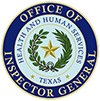MCO improperly pays for ambulance services
A recent OIG inspection uncovered oversight issues involving non-emergency ambulance claims approved by Molina Healthcare of Texas, a Texas Medicaid managed care organization (MCO). The inspection sought to determine if Molina has appropriate controls to ensure claims for ground transportation via ambulance met requirements for reimbursement.
Texas Medicaid permits a provider to request prior authorization for non-emergency ambulance transport to scheduled medical appointments, licensed treatment facilities, or the member's home after discharge from a hospital. This authorization requires a client's medical condition to require an ambulance to travel. The inspection discovered that 10 out of 45 claims for non-emergency transportation were inappropriately paid because Molina's claim system allowed payments to in-network providers without documented prior authorization. Out-of-network providers' claims were processed correctly. Prior authorization is a crucial process wherein healthcare providers must obtain approval from the insurance payer before delivering specific services. This step ensures that the services are medically necessary and that alternative, less costly options have been considered.
In addition, the inspection revealed that out of 51 ambulance claims conducted as emergency transports, six did not contain the proper modifier that would properly classify the transportation and require additional procedure codes for reimbursement. Procedure code combinations play a crucial role in accurately identifying and billing for specific medical services rendered. A review of the claims system showed all appropriate controls were in place to avoid improper payments. However, Molina admitted that staff members had overridden the system after incorrectly interpreting standard operating procedures.
The inspection report made recommendations to avoid similar billing errors in the future, which Molina agreed to implement, specifically:
- Strengthen its claims processing controls to (a) identify claims requiring a prior authorization and (b) deny the claim if a prior authorization is not obtained.
- Clarify its standard operating procedures language and train its claims processing staff on non-emergency and emergency transport claims processing.

